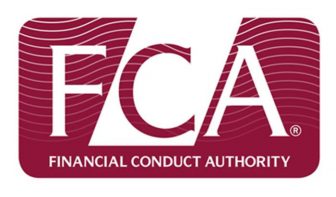Estate agents are set to be supervised by a new anti-money laundering (AML) authority, following a government decision to hand oversight responsibilities to the Financial Conduct Authority (FCA).
Announced by the Treasury as part of a wider reform of AML supervision across professional services, the move will see the FCA take on responsibility for enforcing AML and counter-terrorism financing rules across an estimated 60,000 firms. This includes estate agencies, law firms, accountancy practices, and other regulated businesses, which are currently overseen by 23 different professional and statutory bodies.
The Treasury described the current system as a “key vulnerability” in the UK’s defences against illicit finance, citing fragmentation and inconsistent standards. By consolidating supervision under the FCA, the government aims to streamline enforcement and improve overall compliance across sectors.
However, the changes have drawn criticism from several professional bodies – some of which currently act as AML supervisors and collect fees for doing so. Some have warned the shake-up could lead to significantly higher compliance costs for firms and create a prolonged period of uncertainty and disruption. Others raised concerns about the financial sustainability of their organisations if stripped of supervisory roles and associated income.
The government is expected to consult further on implementation timelines, but the decision confirms a shift toward a more centralised enforcement model, ending years of debate over the effectiveness of the UK’s current AML supervisory regime.
Sheila Kumar, chief executive of the Council for Licensed Conveyancers, said: “This is not the outcome we had expected because, as we and others [including all the other legal sector regulators] made clear to HM Treasury in response to the 2023 consultation, it will create a dual supervision regime and risks increasing the burden on the regulated community and a financial burden that will be passed on to users of legal services. We await the detail and the next consultation on the operation of the new arrangements.
“The CLC will be working with HM Treasury and the FCA and the other legal sector regulators to ensure the new system is as efficient and effective as possible in tackling money laundering and terrorist financing. We are concerned that creating a separate regime for AML supervision will require significantly more coordination between front line regulators like the CLC and the FCA as the supervisor of AML compliance but risks opening up gaps in the insight that we currently have across all areas of the practices that we regulate.”
Colette Best, director of anti-money laundering at law firm Kingsley Napley and a former director at the Solicitors Regulation Auchority (SRA), commented: “The FCA is not a natural supervisor for legal services,”
Responding to the decision, Steve Smart, joint executive director of enforcement and market oversight at the FCA, said: “We recognise the benefits of an improved regime for anti-money laundering supervision. These changes will simplify the supervision of professional services, ensure more consistent oversight and help us identify and disrupt crime.
“The FCA will work closely with the government, the Office for Professional Body Anti-Money Laundering Supervision (OPBAS), Professional Body Supervisors, HMRC, the firms we will be supervising and others, as we work together to equip the UK to better fight financial crime. We can draw on our extensive expertise in this area to facilitate a smooth transition and ensure effective regulation.
“The new regime will create enhanced opportunities for collaboration with key partners, including law enforcement, to tackle money laundering.
“The FCA operates nationwide and we anticipate having a significant presence for this new regime in our offices outside of London.”
Read the orginal article: https://propertyindustryeye.com/government-unveils-major-estate-agency-aml-reform-not-the-outcome-we-had-expected/



